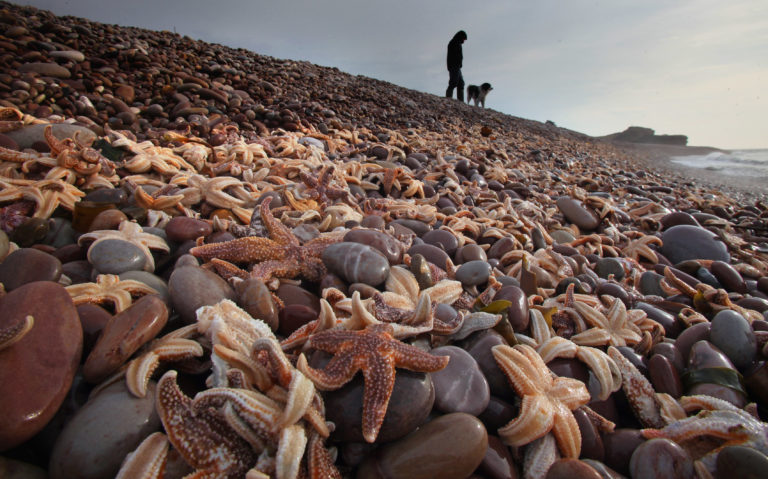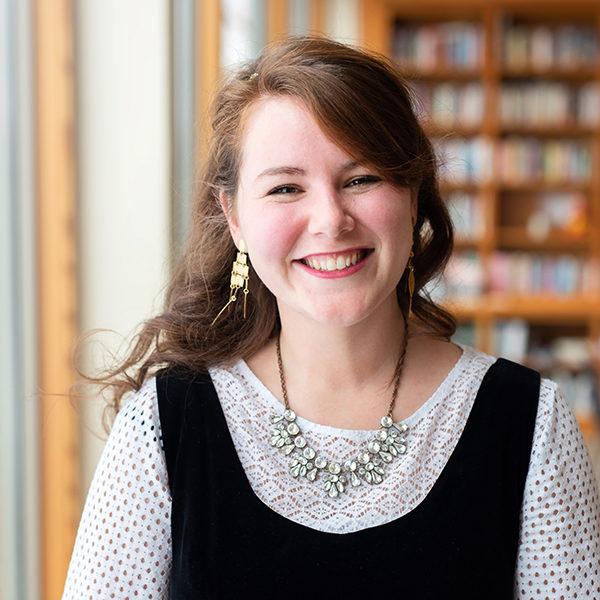
BUDLEIGH SALTERTON, ENGLAND - MARCH 18: A dog walker looks at some of the thousands of starfish that have been washed up on the beach at Budleigh Salterton on March 18, 2010 in Devon, England. Over the last few days hundreds of thousands of starfish have been washed up on the beach, which marine experts believe is due to them become susceptible to high tides and storms after becoming exhausted spawning. Similar events happen once or twice a year in the UK, but it is the first time for Budleigh Salterton. (Photo by Matt Cardy/Getty Images) Image by Matt Cardy/Getty Images.
Life Rushes Back: Anne Morrow Lindbergh on the Gifts of Solitude
Anne Morrow Lindbergh’s Gift from the Sea first met the hands of readers in 1955. Yet, even reading it in 2014, it’s abundantly clear that our discomfort with solitude and our eagerness to fill the void with the dull hum of gadgets has not changed one bit. Her gentle writing is a balm for all those lost in the white noise of the modern era, and an essential guide back home:
“We are all in the last analysis, alone. And this basic state of solitude is not something we have any choice about. It is, as the poet Rilke says, ‘not something that one can take or leave. We are solitary. We may delude ourselves and act as though this were not so. That is all. But how much better is it to realize that we are so, yes, even to begin by assuming it. ‘Naturally,’ he goes on to say, ‘we will turn giddy.’
Naturally, how one hates to think of oneself as alone. How one avoids it. It seems to imply rejection or unpopularity. An early wallflower panic still clings to the word. One will be left, one fears, sitting in a straight-backed chair, alone while the popular girls are already chosen and spinning around the dance floor with their hot-palmed partners. We seems o frightened today of being alone that we never let it happen. Even if family, friends, and movies should fail, there is still the radio or television to fill up the void. Women, who used to complain of loneliness, need never be alone any more. we can do our house-work with soap-opera heroes at our side. Even day-dreaming was more creative than this; it demanded something of oneself and it fed the inner life. Now, instead of planting our solitude with our own dream blossoms, we choke the space with continuous music, chatter, and companionship to which we do not even listen. It is simply there to fill the vacuum. When the noise stops there is no inner music to take its place.
We must re-learn to be alone. It is a difficult lesson to learn today — to leave one’s friend and family and deliberately practice the art of solitude for an hour or a day or a week. For me, the break is the most difficult. Parting is inevitably painful, even for a short time. It is like an amputation, I feel. A limb is being torn off, without which I shall be unable to function. And yet once it is done, I find there is a quality to being alone that is incredibly precious. Life rushes back into the void, richer, more vivid, fuller than before. It is as if in parting one did actually lose an arm. And then, like the starfish one grows it anew: one is whole again, complete and round — more whole, even than before, when the other people had pieces of one.”

